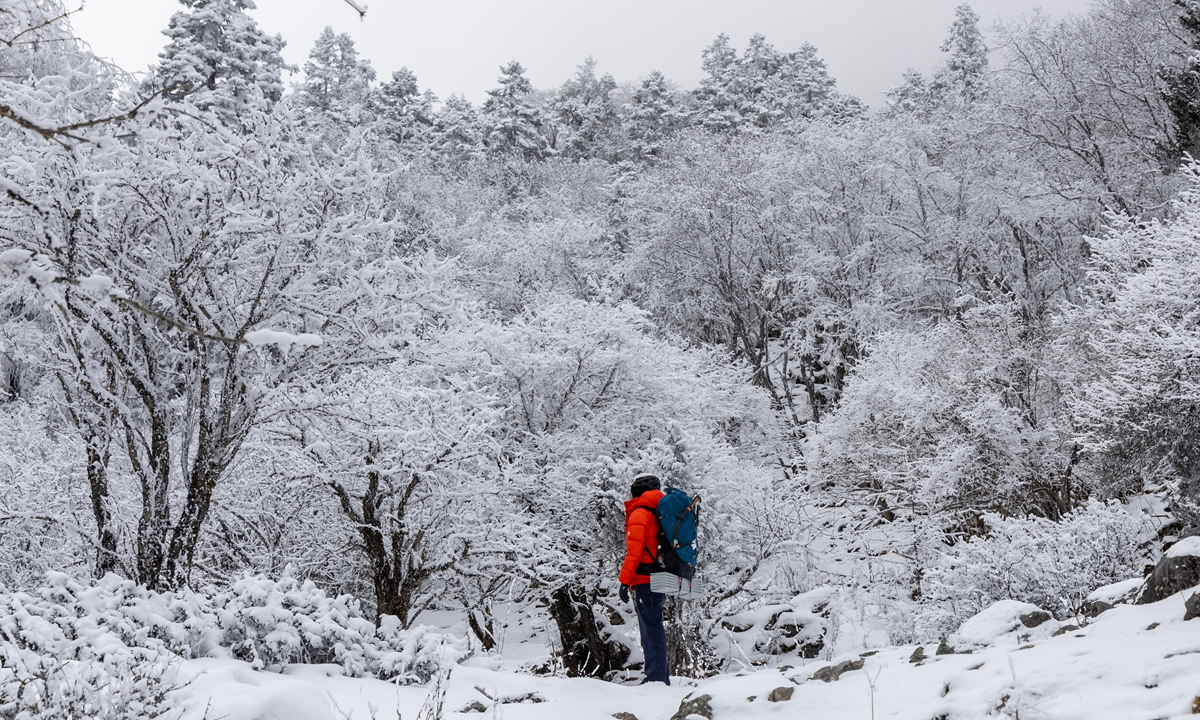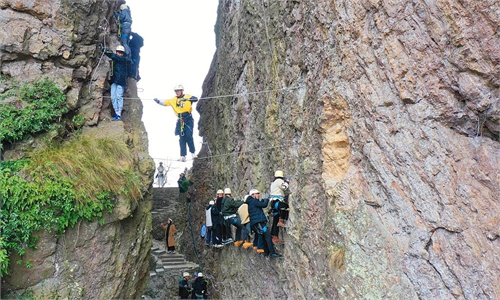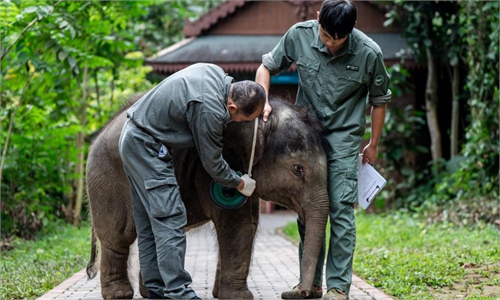ARTS / CULTURE & LEISURE
Mountainous scenic areas temporarily close, caution urged for spring hiking

A hiker watches in the snowy scenery of Aba Prefecture, Southwest China's Sichuan Province, on December 9, 2024. Photo: VCG
While hiking enthusiasts are eager to explore outdoors in spring time, several mountainous scenic areas have temporarily closed recently due to hazardous weather conditions.Meili Snow Mountain National Park in Deqin county, Southwest China's Yunnan Province, announced that due to continuous icy and snowy weather, the Yubeng scenic area will be temporarily closed starting from Monday, with the reopening date to be announced later.
The park announced on Monday that it is currently conducting safety inspections and hazard elimination work.
Meanwhile, on Sunday, in East China's Anhui Province, the Huangshan Scenic Area management committee announced that, for safety reasons, it had decided to temporarily close the hiking trail from Yungu Temple to Bai'e Ridge effective immediately.
The trail from the Beidamen Songgu'an area to Qingliangtai remains closed, while other areas remain open.
A widely circulated video online posted by media outlet Zonglan News shows tourists continuing to walk on the Huangshan trails during heavy snowfall on Saturday.
In the video, several tourists slip and collide with one another.
One of them ends up sliding headfirst down the trail until hitting a guardrail and finally coming to a stop.
Andy An, a certified guide based in Beijing who leads both leisurely and challenging hikes, is advising caution for those planning hikes or treks this season.
Proper preparation, the right gear, and safety awareness are essential for a safe outdoor experience.
"Try avoid hiking alone. It's better to travel in groups. Hiking is a rewarding experience, a refreshing getaway, but getting back home safe is equally important," An told the Global Times on Tuesday.
Yet some accidents are more severe.
In Beijing, the news about a 40-year-old hiker who went missing at Huanghua Peak in the Miyun district has drawn much attention in outdoor communities.
The man went missing on February 15 while hiking, prompting joint rescue efforts from both government and civilian teams.
After five days of searching, the missing man was found. He was suspected to have fallen off a cliff, and unfortunately, was confirmed dead, reported the Beijing Daily on Sunday.
His body was transported down the mountain on Sunday.
Feng Botao, captain of a local branch of the Blue Sky Rescue team, a Chinese civil relief squad, said the missing man's relatives and friends revealed that he was a marathon enthusiast in good physical condition.
He had gone hiking solo and chosen wild trails instead of the scenic areas.
He had a mountaineering app installed on his phone, but after reaching the summit, he turned off the app.
By retrieving surveillance footage and back-end data from the app, the rescue team was able to determine where he started his hike but could not track his descent route.
"A wide range of aspects call for attention, including hiking gear, techniques and precautions," a rescuer surnamed Sun, who also participated in the rescue mission, told the Global Times on Tuesday.
Even experienced hikers can never be too careful.
"Many of them rely solely on physical strength. While they may hike well, it doesn't necessarily mean they have extensive knowledge of self-rescue, wilderness survival, or emergency communication," said Sun.
"They may overlook some crucial details. It's precisely these small, seemingly insignificant details that lead to dangerous incidents."



